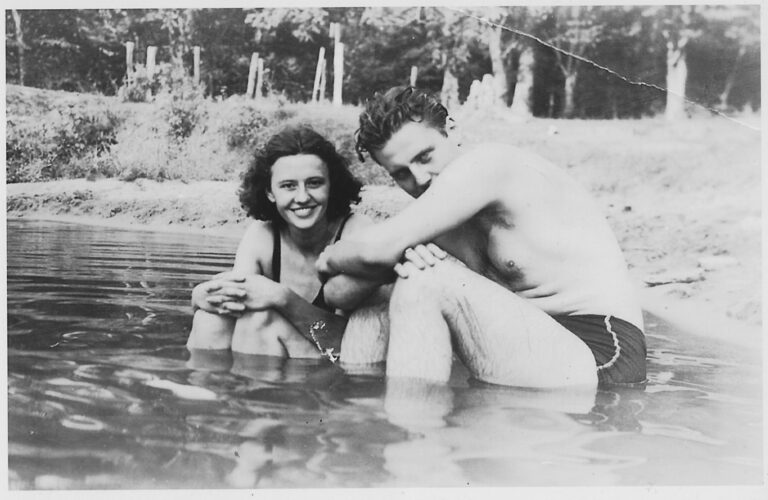RANTOUL — When Larry Schnell was exploring his mother’s attic after her death, he discovered a box full of love letters his parents had sent to each other during World War II.
When Schnell found them, he knew they had significant historical value.
“I opened it up, and I was like, ‘Wow, I didn’t know about these letters,’” said Schnell, who now lives in Rantoul and is a retired journalism professor. “…And I realized there was a lot of talk about music, love and war.”
In his new memoir, “A Sailor’s Song: Lost Love Letters of World War II,” Schnell writes about the discovery of these letters, which documents his parents’ love story — and also explores the little-known role of music in war.
Larry Schnell’s father, Arthur Schnell, served as a coast guard sailor in the Manhattan Beach Coast Guard Band — the first military organization to racially integrate whites and African Americans sharing living and training facilities.
Coast Guard sailors like Larry Schnell’s father played a crucial role during the war.
“When my father got on the ship, he realized they had a piano, they had an organ and [other] instruments,” Schnell said. “They played on deck twice a day — a full military band in the afternoon and a dance band at night, unless the weather was a problem.”
Music “eased the anxiety of the young troops and it helped the seasoned or damaged troops deal with the horrors that they were bringing home,” Schnell said.
Coast Guard sailors also made a significant contribution to war expenditures. Taxes paid for half of the war’s costs, according to Schnell. The rest was paid by war bonds, and the music of Coast Guard sailors was used to encourage people to buy those bonds.
Arthur Schnell played the trombone at the front and center of the parade. The commander of USS General A.W. Greely, George Stedman, Jr., was a crew ship captain who understood the impact music could have on people.
“Stedman played music for them, and I do believe he was in the early stages of understanding music therapy and how it would ease the anxiety of young troops,” Schnell said.
Arthur’s wife, Flo, was a music teacher and, in the book, is described as a consummate musician. Their shared love for music connected them at Ithaca College prior to the war.
The book describes how mail calls were a public event among soldiers, and everyone got to know who received letters and who didn’t. Arthur Schnell always received an abundance of letters and appreciated his wife’s loyalty.
“It’s kind of a fundamental principle in our country that letters are private,” Schnell said.
But during this time, letters were censored to prevent sensitive information, such as location details and troop movements, from leaking.
So, Arthur used secret codes in his letters to let Flo know his ship’s location or destination. When the letter began with “Dear Darling,” the first letter of the second word in each sentence would spell Arthur’s location. He said this provided Flo with a strand of hope.
Arthur returned home from war in 1946. The couple went on to have four children: three sons and one daughter.
Handwritten letters tend to be much more detailed and emotional in contrast to emails or texts, Schnell said. They’re significant because, well beyond the printed word, the person reading the letter can recognize so much from the writing.
“My father’s letters were like two to three pages, and you can see that he wrote them with great care,” Schnell said. “His handwriting is very precise and very detailed.”
Letters carry a lot of meaning that is lost today, he said. The physical paper and envelope tell a story by themselves.
“My father had really nice papers, …given to him by the navy,” Schnell said. “My mother’s were spiraled papers ripped out, cheap papers, because she had to go to the store and buy it.”
He also noticed how her handwriting was quite ragged because most of her letters were written on the train when she was going to work.
With the rapid rise of technology and digital communication, Schnell said he’s concerned about the declining trend of letter writing.
“If we don’t express the level of emotion and feelings that people expressed years ago in letters — if we don’t express them, if we don’t share them — are we losing them altogether?” Schnell said. “In other words, because of the electronic communication system, are we reducing our own emotional abilities?”
Schnell said his parents never talked in depth about their experiences during the war, so it took time to put all the pieces together to tell a cohesive story. He spent about four years writing the book, combining the information in the letters with historical archives and other information.

